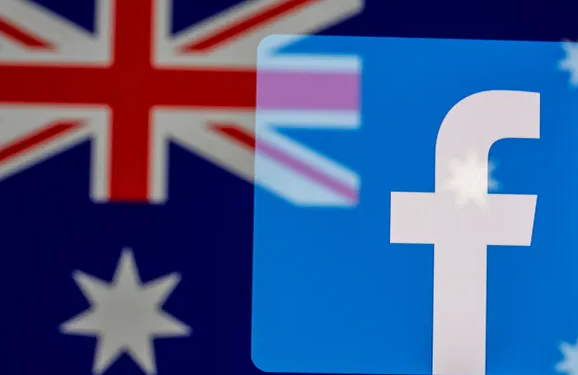Facebook has decided to black out news content from its social networking platform in Australia. Why? What does this mean for users and publishers, and for the rest of the world?
In a strong pushback to Australia’s new media bargaining laws, Facebook has decided to black out news content from its social networking platform Down Under. Calling it their “last choice”, Facebook said it will “stop allowing publishers and people in Australia from sharing local and international news on Facebook and Instagram”.
What does this mean for users and publishers?
Across the world, publishers have used Facebook as a means to reach out to audiences who use it as a content consumption platform, thus increasing their reach and revenues. Users too re-share a lot of news content, adding to their virality. All this results in millions of visits for news sites referred from Facebook’s timeline.
Arguing how the new laws will work against the publishers, William Easton, Managing Director, Facebook Australia & New Zealand, claimed in a blog post: “Last year Facebook generated approximately 5.1 billion free referrals to Australian publishers worth an estimated AU$407 million”.
A quick check of top Australian news sites like Sydney Morning Herald, News.com.au, and The Australian on analytics site Similar web showed they were all getting 7-9% of their traffic from social, which is usually driven primarily by Facebook. With the new Facebook move, most of this traffic, and revenue, will vanish.
What is Australia’s media bargaining law?
Australia’s new media bargaining code, introduced in parliament last December, requires big tech companies like Google and Facebook to enter into agreements with news outlets that result in a commercial contract for showing the latter’s content on their platforms.
At the moment, across the world, news publishers get only a portion of the ad revenues generated from their content, or revenue from an agreement like for generating instant articles. However, this revenue is not stable, and is dependent to a large extent on the algorithm on the two platforms, which keep changing regularly, impacting visibility and reach.
Interestingly, though equally unhappy with the code, Google has inked a AUD30 million a year deal with Seven West Media to show its content on the search engine’s many platforms. This was followed by another deal with Nine Entertainment Co. and, on Wednesday (February 17), a three-year deal for “significant payments” with Rupert Murdoch’s News Corp, which owns The Australian, The Daily Telegraph, and The Herald Sun.
What is Facebook’s issue with the code?
In the blog post, Easton tried to underline that the code “fundamentally misunderstands the relationship between our platform and publishers who use it to share news content”, leaving it with no choice but to stop allowing news content on its services.
He also tried to make a distinction between Facebook’s relationship with publishers and that of Google’s. “Google Search is inextricably intertwined with news and publishers do not voluntarily provide their content. On the other hand, publishers willingly choose to post news on Facebook, as it allows them to sell more subscriptions, grow their audiences and increase advertising revenue,” Easton wrote.
This also offered a reasoning for why Google is willing to have a deal with publishers, but not Facebook.
Not much, as Facebook says “news makes up less than 4% of the content people see in their news feed”.
Over the years, Facebook has been less interested in news as it has veered towards softer and more engaging video content that could drive conversations within a network.
Also, its experience with the way news feeds were gamed during the 2016 US presidential elections has made it wary of becoming a large platform for news.
In fact, in late January, the UK became the first country to get separate Facebook News — what it calls “a destination within the Facebook app that features news from hundreds of leading national, local and lifestyle outlets”. This again seems to be an effort to take news out of the feed even more, and to make it reside in a separate tab.
Facebook claims Australia was one of the markets where this was to be rolled out, but now it will have to wait until there is more clarity on the law.
What does this mean for rest of the world?
Facebook and Google rightly fear the action in Australia could trigger similar laws across the world. Google, for instance, is already inking deals with publishers in countries like France. This might also expedite Facebook’s plans to rollout Facebook News in other geographies, and thus make the inflow of news into its platforms more contractual.




